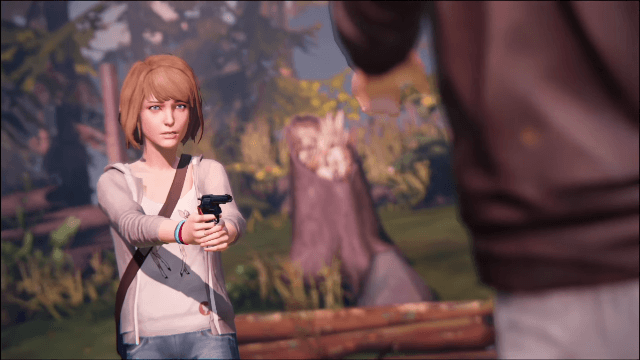Teenagers are often thought of as rebellious beings with no control over their emotions – something to be put under close supervision as they go about their daily lives. While growing up into adulthood can be tough at times, teenagers don’t exist simply to do the opposite of whatever adults say. Meaningful thoughts and influential decisions are made by teenagers every day, and Life is Strange is able to show that in a beautifully stylized way.
Three out of five episodes in, Life is Strange by Dontnod Entertainment demonstrates many issues that play a huge role in teenage life: bullying, relationships, and suicide. Besides teenagehood, Life is Strange also tackles issues that are prevalent in society as a whole: privacy, rape, and drug use. Although Life is Strange is certified as an M-rated game, the issues explored in the game feel important across both sides of the maturity spectrum; it provides a nostalgic perspective for the mature, and a taste of the real world for those not yet mature.

“I vow to use my powers for good, not evil.”
The protagonist of Life is Strange, Max Caulfield, has the power to rewind time. Throughout the game, she is able to undo her mistakes, knowing full well what their outcomes will be. However, in the most significant moment of the game so far, she loses her power, and decision-making becomes crucial – no rewind, and no mistakes. Despite not having any supernatural powers, Max still has the ability to save a fellow teenager from committing suicide with only the aid of her young adolescent mind. This moment in the game makes Max’s uncanny power irrelevant, instead bringing Max’s humanity and experiences as a teenager to the forefront.
In real life, similar situations with a solution like Max’s rarely happen. The role of the crisis negotiator has been designated to firemen and police with professional training and preparation. The act of helping people with their lives has become a job for a select few, who are never guaranteed to succeed when they are put in unfamiliar settings.
Life is Strange shows that even without the presence of a professional or an expert, a teenager can save another’s life by relating to her struggles and resolving to overcome them together. When Max is applauded by her peers and called a hero, she brushes it off and attributes her success to luck. No professional, teacher, or adult could have done what Max did, and no one else even stepped forward to try, because only she had the luck and unique of a teenager, which was the only power she needed.

“I still have to be careful how I use my power; I don’t wanna get stuck in time.”
In Life is Strange, players have to make many choices. Most, if not all, of those choices have huge ramifications – not only for Max, but also across the entire town of Arcadia Bay. In addition to the students in her high school, the choices Max makes impact teachers, parents, and workers outside of her school, indicating to the player that the consequences of their decisions are not just limited to characters of the same age as Max; they affect adults as well. The reason her choices seem to matter so much can be explained by Max herself: chaos theory.
Chaos theory, or more specifically, the butterfly effect, is where a small change in one state of a nonlinear system results in large differences in a later state. In other words, small mistakes lead to big consequences. Max’s choices may seem small, but as the game progresses, the consequences of those choices are big.
This is true outside of the game – the choices that teenagers make may seem trivial to adults as well as themselves, but in reality, every choice affects change. Every decision results in a bigger outcome, and Life is Strange proves that teenagers have that power. Their wisdom and maturity may be minor, but, as strange as it is, the influence of teenagers on everyday life is major. No teenager may have the power to rewind time, but every teenager has the power to make the most of it – forever.







Published: Jun 6, 2015 11:24 am